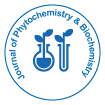Acute and Sub-Chronic Toxicity Screening of Chloroform Extract of Ficuscapensis in Rats
Received Date: Jul 27, 2018 / Accepted Date: Sep 27, 2018 / Published Date: Oct 08, 2018
Abstract
Chloroform extract of leaves of Ficus capensis previously defatted with n-hexane, a subject of an on-going research on the pharmacological basis for its use in Igala folk medicine for the typhoid fever therapy, was investigated for its in vivo toxicity in albino rats. The chloroform extracts were obtained by cold maceration, first defatted using n-hexane. Fifty-six healthy albino rats (174 ± 24 g) were randomized into seven groups of 8 animals (4 males, 4 females) each for the acute toxicity study. Sixty healthy albino rats (183 ± 39 g) were randomized into six groups of 10 animals (5 males, 5 females) each for the sub-chronic toxicity study. One group served as control while the other groups were administered with graduated doses of the extract. Animals that became moribund during the study and animals that survived the acute test period were sacrificed and necropsied. After every 7 days, 1 male and 1 female from each group of the sub-chronic toxicity test were sacrificed and necropsied. The animal organs were observed for physical signs of abrasions. The activities of marker enzymes such as serum aspartate transaminase, serum alanine transaminase and serum alkaline phosphatase, and total protein were determined using kits. The PCV was determined using the haematocrit capillary method. The median lethal concentration of Ficus capensis on albino rats was >5000 mg/kg body weight. There were no obvious signs of pharmacotoxicity in treated and control animals. There were no visible signs of abrasions or morphological changes in the organs of the treated animals in comparison to the control animals. Although the values of biochemical parameters obtained from treated animals differed significantly (p<0.05) from that of the control animals, all the values were within reference range. These results suggest that defatted chloroform extract of leaves of Ficus capensis does not provoke toxic response in rat models and may not be acutely or sub-chronically toxic in albino rats.
Keywords: Ficus capensis; Acute toxicity; Sub-chronic toxicity; Igala; Folk mediciney
Citation: Musa DA, Musa A, Nwodo OFC (2018) Acute and Sub-Chronic Toxicity Screening of Chloroform Extract of Ficus capensis in Rats. J Phytochemistry Biochem 2: 112.
Copyright: © 2018 Musa DA, et al. This is an open-access article distributed under the terms of the Creative Commons Attribution License, which permits unrestricted use, distribution, and reproduction in any medium, provided the original author and source are credited.
Share This Article
黑料网 Journals
Article Usage
- Total views: 3700
- [From(publication date): 0-2018 - Jan 27, 2025]
- Breakdown by view type
- HTML page views: 2904
- PDF downloads: 796
